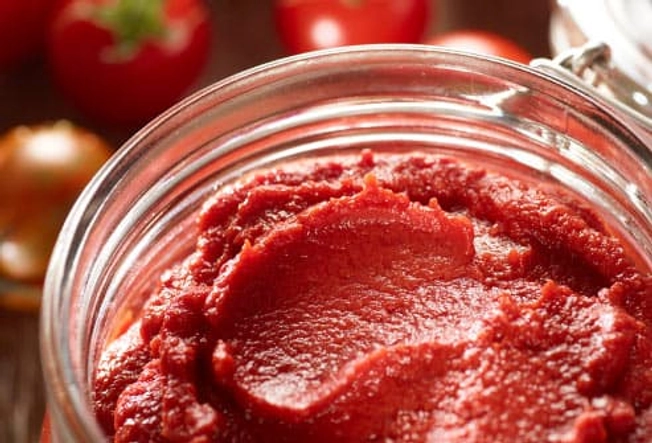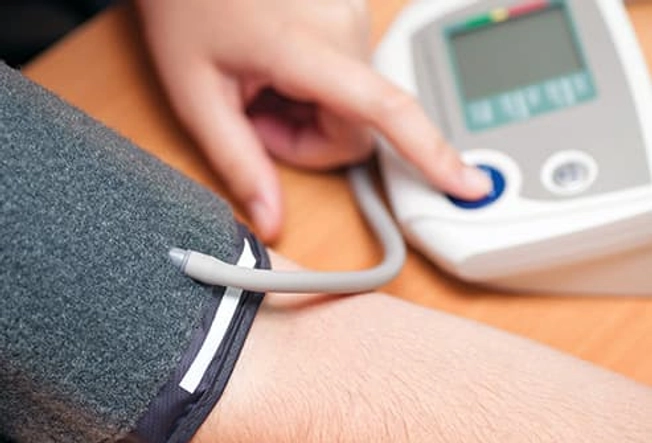How Eating Ketchup Can Help Protect Your Heart: The Surprising Benefits of Tomato Sauce
Tomato-based products like ketchup have long been a popular addition to many meals worldwide. Whether it's a classic side for fries or a topping for burgers, ketchup is often seen as a flavorful condiment rather than a health food. However, recent research has revealed that consuming ketchup more regularly may offer heart-health benefits, including reducing "bad" cholesterol levels. A new study published in the British Journal of Nutrition sheds light on how this common condiment could play a significant role in promoting cardiovascular health.
This groundbreaking study conducted by scientists at the University of Oslo in Finland shows that eating ketchup—or more specifically, tomato-based sauces and juices—may help reduce levels of low-density lipoprotein (LDL) cholesterol, commonly known as "bad" cholesterol. Given the detrimental effects of high LDL cholesterol on heart health, this discovery opens up a whole new perspective on how everyday foods might be used to reduce the risk of heart disease.

The Role of Cholesterol in Heart Health
Before diving into the specifics of the research, it’s important to understand why cholesterol plays such a critical role in heart health. Cholesterol is a fatty substance found in the blood, and while it’s essential for various bodily functions—such as the production of hormones and the formation of cell membranes—having too much LDL cholesterol in the blood can increase the risk of heart disease and stroke.
LDL cholesterol builds up on the walls of arteries, causing plaque to form. This plaque narrows the arteries, which can eventually restrict blood flow to vital organs, including the heart and brain. As a result, high levels of LDL cholesterol are one of the primary risk factors for heart disease, heart attacks, and strokes. Thus, finding ways to reduce LDL cholesterol naturally, without the need for prescription medications, is highly beneficial.
The Finnish Study: How Tomato Sauce Helps Lower "Bad" Cholesterol

The study from the University of Oslo investigated the effects of tomato sauce and tomato juice on cholesterol levels. Researchers recruited a group of volunteers who consumed 30 grams of tomato sauce three times a day (with breakfast, lunch, and afternoon tea) or drank 400 ml of tomato juice daily. These amounts are relatively easy to incorporate into a regular diet and are similar to typical portion sizes.
After just three weeks of this daily consumption, the results were striking. The participants experienced a reduction of 6% in total cholesterol levels, and the decrease in LDL cholesterol was even more significant—nearly 13%. This means that incorporating tomato sauce or tomato juice into meals could have a real impact on lowering harmful cholesterol levels and, by extension, reducing the risk of heart disease and stroke.
This is significant because reducing LDL cholesterol by just a small percentage can lower the risk of heart attacks and strokes over time. According to the American Heart Association, even modest reductions in LDL cholesterol can have a long-term impact on cardiovascular health.

How Do Tomato-Based Products Help Lower Cholesterol?
So, what makes tomato sauce, and ketchup in particular, so effective at reducing cholesterol levels? The key lies in the powerful antioxidants found in tomatoes, especially lycopene, which is responsible for the red color in tomatoes. Lycopene is a carotenoid that has been linked to a variety of health benefits, including improved heart health.
1. Lycopene: The Antioxidant with Heart-Healthy Properties
Lycopene is a potent antioxidant that has been shown to help protect the body from oxidative stress, a condition that can lead to inflammation and damage to blood vessels. Oxidative stress is one of the factors that contributes to the development of cardiovascular disease. By neutralizing free radicals and reducing inflammation, lycopene helps to keep the cardiovascular system functioning properly.

Additionally, some studies suggest that lycopene can reduce LDL cholesterol oxidation, which is a key step in the development of plaque in the arteries. By preventing LDL cholesterol from oxidizing, lycopene may help prevent the buildup of plaque and reduce the risk of heart disease.
2. Fiber and Nutrients in Tomato Sauce
Tomato-based products also contain dietary fiber, vitamins, and minerals that contribute to heart health. For example, tomatoes are rich in vitamin C, potassium, and folate—nutrients that help support healthy blood vessels, lower blood pressure, and promote overall cardiovascular health. Fiber, in particular, is beneficial because it binds to cholesterol in the digestive tract and helps expel it from the body.
3. Antioxidants Beyond Lycopene
While lycopene is the star antioxidant in tomatoes, it’s not the only one. Tomatoes also contain flavonoids, such as quercetin, that have anti-inflammatory and antioxidant effects. These compounds work together to promote healthy circulation, reduce blood pressure, and decrease the likelihood of cholesterol buildup in the arteries.
The Importance of Regular Consumption
While the study's findings are encouraging, it’s important to note that eating ketchup or tomato sauce once in a while won’t produce immediate, dramatic changes in cholesterol levels. The key to reaping the heart-health benefits of tomatoes is consistency. In the Finnish study, participants consumed tomato-based products daily for several weeks, leading to measurable reductions in their cholesterol levels.
For anyone looking to take advantage of these benefits, it’s advisable to incorporate tomato sauce or tomato juice regularly into meals. Adding a few spoonfuls of tomato sauce to pasta dishes, salads, or sandwiches, or sipping a glass of tomato juice with breakfast, could go a long way in supporting long-term heart health. Just be mindful of the added sugars and sodium often found in commercial ketchup and tomato sauces—look for varieties with minimal additives and opt for low-sodium versions when possible.
Additional Heart-Healthy Tips to Complement Tomato Consumption
While eating tomato sauce regularly can certainly help lower cholesterol, it’s important to remember that overall lifestyle choices play a crucial role in heart health. Here are some additional tips to complement your heart-healthy diet:
1. Eat More Fiber-Rich Foods
Incorporating high-fiber foods, such as whole grains, legumes, fruits, and vegetables, into your diet can further help reduce cholesterol levels. Fiber binds to cholesterol and helps remove it from the body.
2. Choose Healthy Fats
Replacing saturated fats and trans fats with unsaturated fats—such as those found in olive oil, avocados, and fatty fish—can help improve your cholesterol profile and reduce the risk of cardiovascular disease.
3. Exercise Regularly
Regular physical activity, especially aerobic exercises like walking, swimming, or cycling, can raise levels of "good" cholesterol (HDL) while lowering LDL cholesterol.
4. Limit Processed Foods
Minimize the intake of processed foods, especially those high in sodium, sugar, and unhealthy fats. These can contribute to weight gain, high blood pressure, and increased cholesterol levels.
Conclusion
Eating ketchup or tomato-based products more regularly could be a simple yet effective strategy for improving heart health. The findings from the University of Oslo's study highlight the powerful cholesterol-lowering benefits of tomatoes, particularly due to the antioxidant lycopene and the other nutrients found in these foods. Incorporating more tomato sauce, ketchup, and tomato juice into your meals can be an enjoyable way to support a healthy heart and reduce the risk of cardiovascular diseases.
Of course, it's important to remember that a healthy heart is the result of a combination of factors, including a balanced diet, regular exercise, and other lifestyle habits. By making heart-healthy choices and adding tomato-based products to your daily routine, you're taking proactive steps toward a longer, healthier life.




